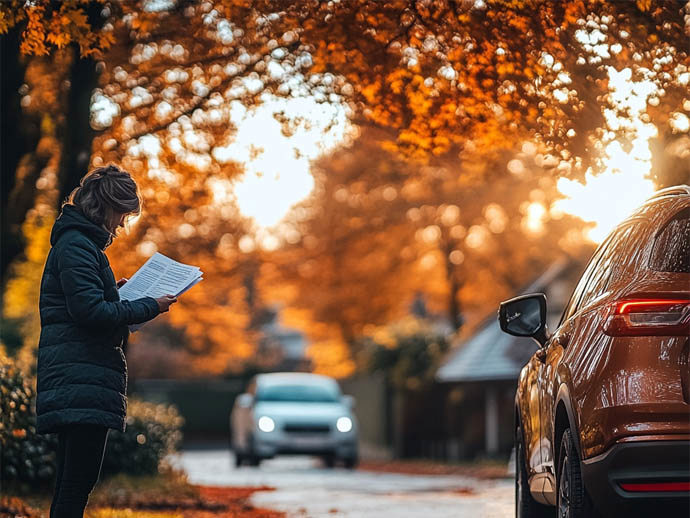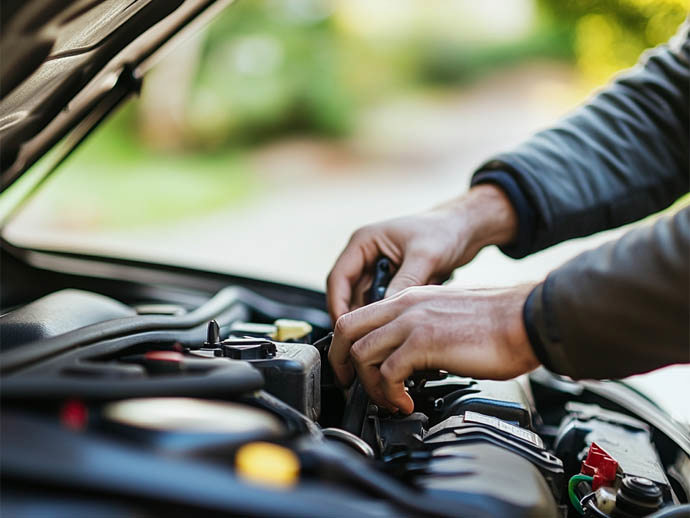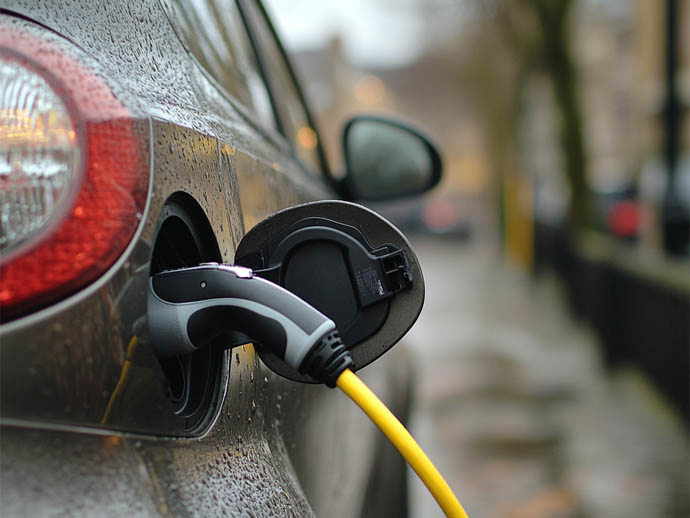
Driving a car is an essential part of modern life. Whether you own or lease a car, the costs can quickly add up.
From the initial payment to insurance to fuel and maintenance, driving your own car requires careful budgeting and financial planning.
You don’t want to waste your hard-earned cash, so we’ve created this blog to discuss the strategies you can adopt to ensure you save money on your car.
We talk about:
- Choose a car that fits your budget
- Lower car insurance costs
- Consider different car finance options
- Use the correct oil and change it regularly
- Replace your fuel and air filters
- Keep your car clean
- Don’t wait to get an issue fixed
- Fuel efficient driving
- Consider an electric car
- Plan routes strategically
We all have our own individual budgets. Some of us might be looking for a reliable car to get from A to B, while others might want to splash the cash on a premium model.
However, there’s one thing that's consistent: choose a car that fits your budget.
Make sure you don’t get dragged into a contest of who’s got the best car and ensure you are driving a car that YOU can afford.
Before agreeing to a car, outline your budget and work out your disposable income after tax. There are some great online resources for this, including MoneySavingExpert’s budgeting planner.
If you’re after a cheaper car, consider Used Car leasing. It's a long-term rental agreement on a second-hand lease car, and because it's been previously on the roads, it can save you a lot of money compared to a new lease car.

Car insurance has skyrocketed in recent years, and according to Nimblefins, the average price of UK car insurance is now £622 a year! If you want to save some money on your car, insurance is a great place to start.
Here are the most common ways you can get cheaper car insurance:
- Improve your driving - Although not as easy as it sounds, improving your behaviour on the road is a great way to reduce car insurance. Drive safe to build up your no-claims discount, and avoid getting tickets and fines.
- Keep your car safe and secure - If you live in an urban area, ensure your car is parked in a secure location to decrease the chance of it getting stolen or damaged. You need to let your insurers know where it will be parked most of the time, and they’ll increase the cost if it's in an unsecure spot. Check out our blog, How to Protect Your Car From Thieves, for more information.
- Pay annually - It’s cheaper to pay your insurance annually rather than monthly.
- Limit your mileage - The more you are on the road, the more likely you’ll be involved in an accident. Where possible, try to use public transport or carpool.
Don’t settle for the first finance offer you find; explore all the options. You might find that car leasing suits your budget and lifestyle much better than buying a car outright.
Also, you don’t have to worry about depreciation with car leasing as you’re never the legal owner of the vehicle.
Find out more in our guide, Buying vs Leasing.
Car maintenance is one of those things you forget about, and then all of a sudden, you’re hit with a ridiculously expensive car fault… Not ideal!
However, a lot of common maintenance issues can be prevented, saving you money, time, and effort.
Engine oil is crucial to your engine running smoothly and is one of the easiest ways to save money on car maintenance. Changing your oil takes no longer than five minutes and could save you around £80 when taking your car for a service.
If you're unsure what oil to use, your car's handbook will list the oil suitable for your vehicle. It's recommended that you change your oil every 5,000 to 7,500 miles. For more information, check out the AA for a step-by-step guide on how to change your oil.

Fuel and air filters stop unwanted particles in the air from entering and damaging your fuel tank and engine.
Astonishingly, taking your car to a garage to replace your fuel filter could cost you up to £170 and also up to £60 for your air filter.
If you’re confident enough, we’d recommend doing this yourself. Replace your fuel filter between every 20,000 and 150,000 miles and your air filter every 12,000 to 15,000 miles.
In addition to making your car look better, regularly cleaning the interior and exterior will save you money in the long term. If you neglect your car for too long, rust may start to appear on the exterior, or the interior may begin to smell.
These would prove expensive to fix, especially for rust repair, which could set you back up to £200 (depending on the damage).
We’d recommend taking your car to a car wash a couple of times a month and regularly cleaning the interior.
This is probably the most important one concerning maintenance. We all have hectic schedules, but putting off getting a problem fixed will only lead to further issues and greater maintenance costs.
If you spot a warning light or your car isn’t running properly, immediately address the problem.
One of the easiest ways to save money on car expenses is to adapt the way you drive. Aggressive driving habits, like speeding and quick acceleration, can reduce your car’s fuel efficiency and lead to greater fuel costs.
- Drive smoothly - Avoid rapid starts and stops. Gradual acceleration and deceleration reduce strain on the engine and brakes, improving fuel economy.
- Use cruise control - Most cars nowadays come with cruise control, which is a great way to maintain a consistent speed and help improve your car’s fuel economy.
- Avoid idling - Idling the engine is when you leave a car running when it's stationary. Although this can’t be helped in some situations, try and turn off the engine if you expect to be stationary for more than a minute.

Although the upfront costs of an electric vehicle tend to be more expensive, fuel costs are much cheaper than a normal vehicle.
Also, maintenance costs are lower because electric vehicle powertrains have less moving parts than conventional engines, such as no exhaust system, starter motor, or fuel injection systems. Because of this, servicing and maintenance tend to be much lower.
Route planning is an underrated trait for drivers. By planning a route that avoids traffic, you can save time and money and prevent wear and tear on your vehicle.
We’d recommend using a GPS with real-time updates for the most accurate information when route planning, and also combining multiple errands into one trip to reduce the number of cold starts.
If you can, plan out your week on the roads and take advantage of it where you can!
To find out more about how to save money on a car, check out our handy motoring guides, such as How to Save Money on Fuel for Your Vehicle and Winter Car and Van Care.
We are also one of the UK’s largest car leasing brokers, offering a range of services such as Fast Lease and Used Car Leasing. For more information, check out our leasing deals or call us on 0345 811 9595.

